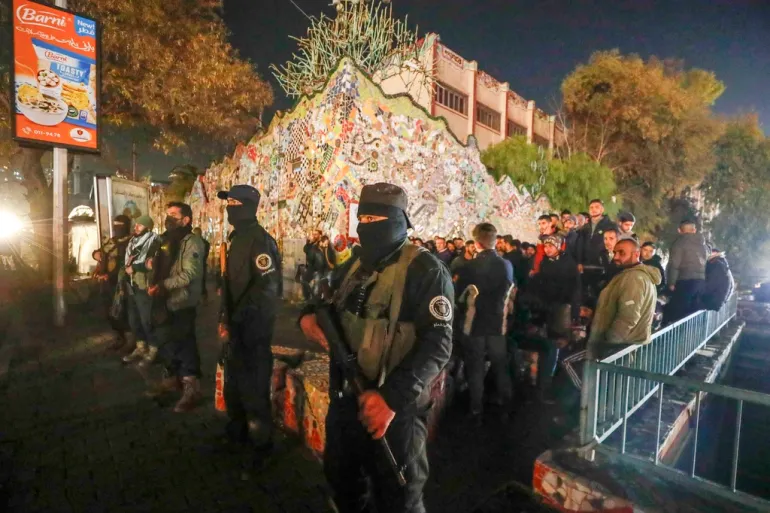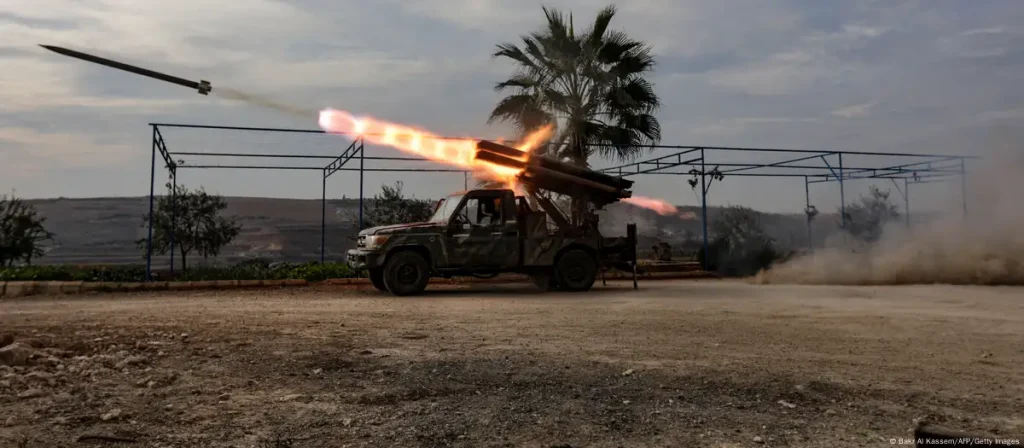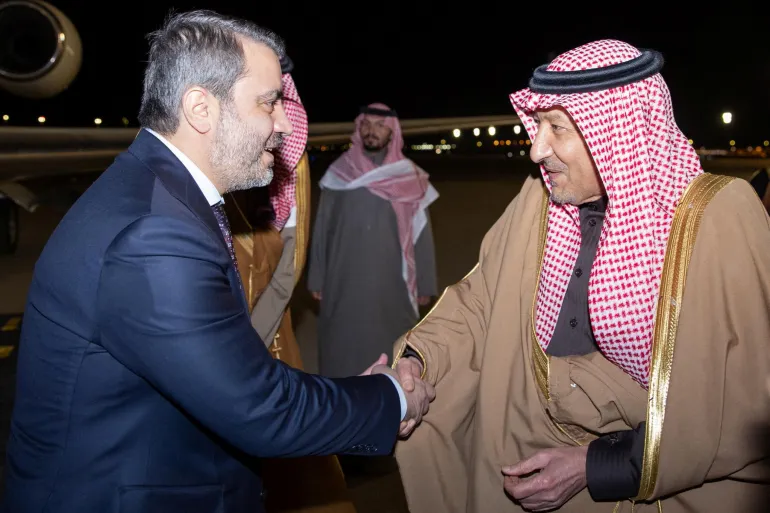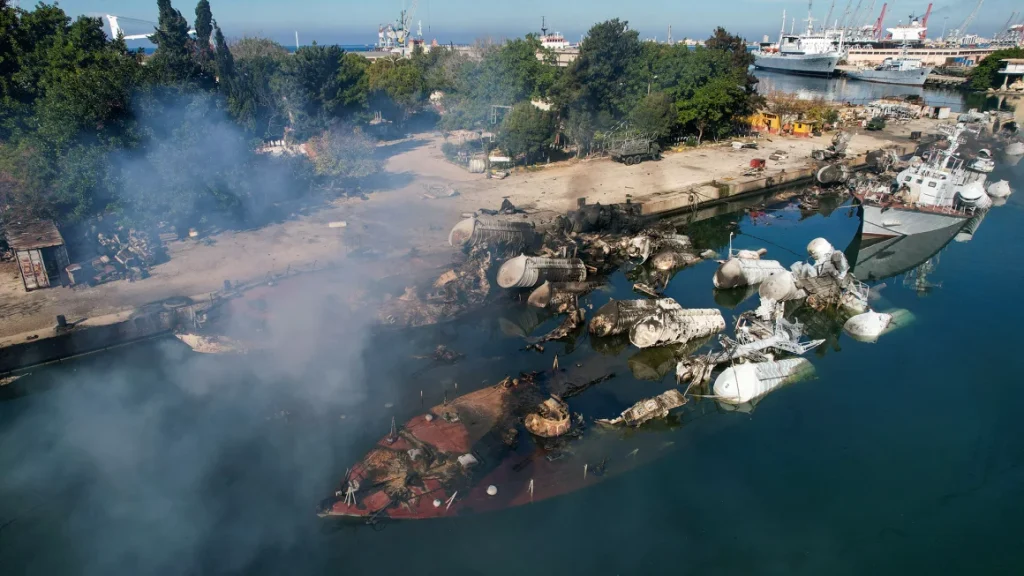Rebel offensive boosts Turkey’s influence in Syria
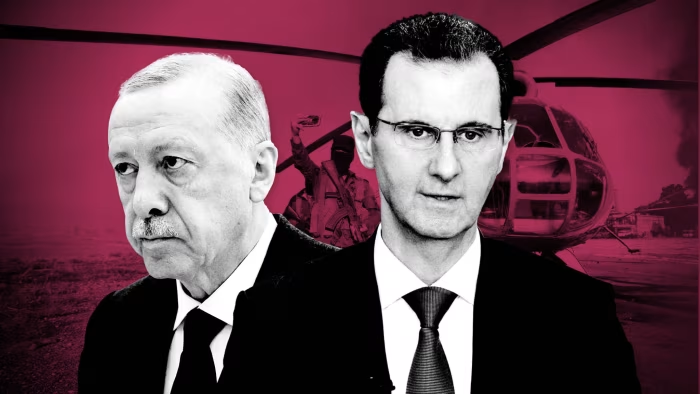
In recent developments in Syria, a new rebel offensive has significantly boosted Turkey’s influence in the region, further solidifying its strategic position amid the ongoing civil war. The offensive, which involves various Syrian rebel groups backed by Turkey, is seen as a direct challenge to Syrian President Bashar al-Assad’s regime and a step forward for Turkey’s ambitions to shape the post-war landscape of Syria. As the situation on the ground continues to evolve, Turkey’s role in the conflict is becoming increasingly pivotal, influencing not just the military dynamics but also the broader geopolitical situation in the Middle East.
Background to Turkey’s Involvement in Syria
Turkey’s involvement in Syria began in earnest in 2011 when the Syrian Civil War erupted, and Ankara initially supported the Syrian opposition against President Bashar al-Assad’s government. Over the years, Turkey has been a major backer of various rebel factions in Syria, particularly those opposed to the Assad regime, as well as those that align with Turkey’s broader geopolitical interests. The Turkish government, led by President Recep Tayyip Erdoğan, has long been focused on countering Kurdish militias in Syria, particularly the Syrian Democratic Forces (SDF) and the People’s Defense Units (YPG), which Turkey considers extensions of the outlawed Kurdistan Workers’ Party (PKK).
Turkey’s military intervention has escalated with multiple operations over the years aimed at driving out Kurdish fighters and supporting rebel groups that align with Turkish interests. Operations like Euphrates Shield (2016), Olive Branch (2018), and Peace Spring (2019) have had significant impacts on the Syrian conflict, altering territorial control in key areas of northern Syria. These operations, particularly those in the north, have reinforced Turkey’s military presence in the region, enhancing its influence over the rebel factions and creating a de facto Turkish-controlled zone in parts of Syria.
The Rebel Offensive and Its Strategic Importance
The latest rebel offensive, which began in mid-2024, marks a significant development in Syria’s northwest, particularly in the areas of Idlib and Aleppo. Rebel groups, including some Turkish-backed factions such as the Syrian National Army (SNA) and Hayat Tahrir al-Sham (HTS), have launched coordinated attacks on Assad-controlled territories, especially targeting strategic military installations and supply routes. The offensive aims to recapture key areas, and importantly, to put pressure on the Assad regime’s strongholds, which would weaken its military position and challenge its territorial control.
From Turkey’s perspective, this offensive has multiple strategic benefits. First, it allows Turkey to maintain a presence in key areas of northern Syria, reinforcing its territorial influence. These regions, particularly around Idlib, serve as a critical buffer zone, protecting Turkey’s southern border and minimizing the threat of Kurdish militias. The offensive also sends a message to both the Assad regime and its Russian allies that Turkey is a force to be reckoned with in shaping Syria’s future.
The offensive is also an attempt by Turkey to keep the pressure on Assad’s forces, as well as to balance the growing presence of Russia and Iran in Syria. By supporting the rebels, Turkey is indirectly challenging the Russian-led coalition that has propped up Assad’s government since 2015. This geopolitical maneuvering is seen as part of Turkey’s broader effort to secure a seat at the table in any future negotiations over Syria’s political settlement.
Turkey’s Relations with Rebel Groups
Over the years, Turkey has cultivated close ties with various rebel groups operating in northern Syria. These groups, many of whom are ideologically aligned with Turkey’s goals of removing the Assad regime and resisting Kurdish militias, have been instrumental in Turkey’s military operations.
The SNA, for example, is a coalition of Syrian rebel factions that was formed with significant Turkish support and training. Many of these groups have been incorporated into Turkey’s military operations, where they not only fight against Assad’s forces but also help secure territories that Turkey has taken control of in northern Syria. By backing these groups in the recent offensive, Turkey ensures that its interests are advanced on the ground while maintaining leverage over these factions.
In addition to the SNA, HTS, an Islamist militant group formerly linked to al-Qaeda, has gained increasing prominence in the rebel offensive. While HTS is more radical than many of Turkey’s other allies, Turkey has forged pragmatic relations with the group. HTS controls large parts of Idlib province, and its cooperation with Turkish forces has proven crucial in maintaining stability in the region. Despite concerns over HTS’s radical ideology, Turkey views the group as a necessary partner in its efforts to challenge Assad’s forces.
Impact on Syrian Civil War Dynamics
The offensive has implications not only for Turkey’s influence but also for the broader dynamics of the Syrian Civil War. As the situation on the ground becomes more complex, with multiple foreign actors involved, the rebel offensive highlights the ongoing fragmentation of Syria and the competing interests of international stakeholders.
Russia, a key ally of Assad’s government, has responded to the Turkish-backed rebel offensive by ramping up its airstrikes in support of Syrian government forces. Moscow’s military presence in Syria has allowed Assad to regain much of the territory lost to rebel forces in the early years of the war, and the recent developments underscore the high-stakes nature of Syria’s ongoing conflict. The growing presence of Russian forces and their coordination with Syrian military operations is something that Turkey has consistently sought to counter through its support of the rebels.
Iran, another key ally of the Assad regime, also plays a significant role in the conflict. Tehran has been active in supporting Assad’s forces, both militarily and politically, and has made strides in bolstering its influence in Syria. Turkey’s offensive and its continued backing of opposition groups in Idlib serve as a direct challenge to Iran’s ambitions in the region. The evolving dynamics in Syria, particularly the struggle for control in the north, are likely to shape Turkey’s strategy in the coming months, as it seeks to counterbalance the influence of both Russia and Iran.
Geopolitical Implications for Turkey
Turkey’s actions in Syria are not merely a response to domestic security concerns but also a key part of its broader geopolitical strategy. As Turkey continues to assert itself as a regional power, it seeks to maintain influence over neighboring countries, especially in conflict zones like Syria. The latest rebel offensive has reinforced Turkey’s position as a central player in the Syrian conflict, and its involvement is likely to shape any future peace talks or political settlements.
Turkey’s influence in Syria also has implications for its relationships with Western allies, particularly the United States and NATO. Turkey’s actions in northern Syria have been a source of tension with Western allies, especially regarding its military operations against Kurdish forces, which the U.S. has supported in the fight against ISIS. However, Turkey’s increasing military footprint in Syria has also led to closer cooperation with Russia, raising concerns within NATO about Turkey’s shifting alliances.
At the same time, Turkey’s intervention in Syria serves as a reminder of the country’s strategic ambitions and its ability to shape the region’s political future. By continuing to back rebel groups and pushing back against Assad’s forces, Turkey is positioning itself as a key player in any potential post-conflict reconstruction efforts.
The rebel offensive in Syria has become a critical juncture for Turkey, allowing the country to reinforce its influence in the region. By supporting rebel factions in their fight against the Assad regime, Turkey has secured its position in northern Syria and has sent a clear message to both regional and international powers about its role in shaping Syria’s future.
As the Syrian Civil War continues to evolve, Turkey’s involvement will undoubtedly remain a central factor in the conflict’s outcome. The offensive not only underscores Turkey’s military strength and strategic foresight but also signals the complexities of Syria’s multi-faceted war, where regional and global powers have conflicting interests. For Turkey, the path forward involves maintaining its relationships with rebel groups while navigating the increasingly intricate political and military challenges posed by Russia, Iran, and the Syrian government.


